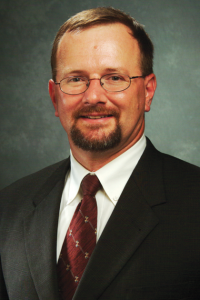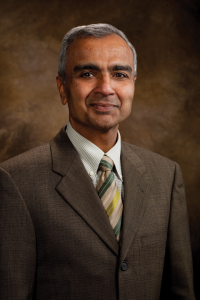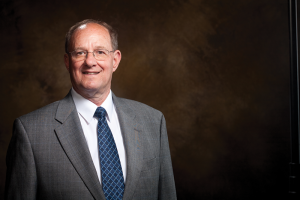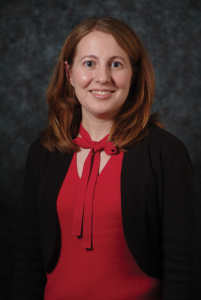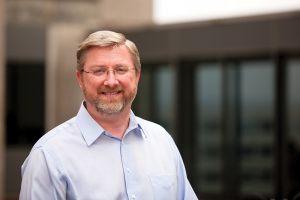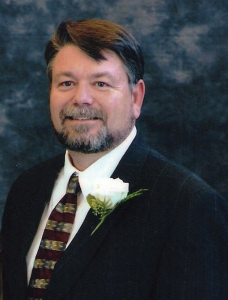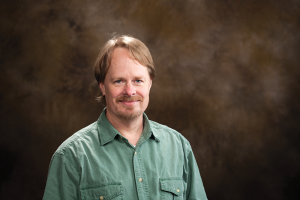Online Program Recognized by U.S. News and World Report
U.S. News and World Report has listed the College of Engineering’s Master of Science in Engineering program as 25th out of 66 online graduate engineering programs in its Best Online Programs rankings.
The Master of Science in Engineering program, directed by Ed Pohl, associate professor of industrial engineering, has been offering online degrees since 2009. It is taught by graduate faculty from the College of Engineering. This program is designed for students who want to further their education in a variety of engineering topics, and its graduates are well-prepared for a career in engineering and management of engineering systems, processes and organizations.The Master of Science in Engineering program is open to students with a bachelor’s degree in any engineering field and incorporates classes from the traditional master of science degrees in biological, chemical, civil, computer systems, electrical, environmental, industrial, mechanical and transportation engineering, as well as operations management.
Professor Elected President of Agricultural and Biological Engineering
Lalit Verma, head of the department of biological and agricultural engineering, has been elected as the 2013-2014 president of the American Society of Agricultural and Biological Engineers. Verma, who is currently serving as president-elect of ASABE, will take office as president in July.The American Society of Agricultural and Biological Engineers is a scientific and educational organization dedicated to the advancement of engineering applicable to agricultural, food and biological systems. Founded in 1907, ASABE has members in more than 100 countries. ASABE members serve in industry, academia and public service and are uniquely qualified to determine and develop more efficient and environmentally sensitive methods of cultivating food, fiber and timber for an ever-increasing world population.Verma is a fellow of ASABE, the American Institute for Medical and Biological Engineering and the Institute of Biological Engineering. Verma is also internationally recognized for his research in rice and forage post-harvest engineering and technology.
Two Professors Selected for Frontiers Symposium
Norman Dennis, University Professor of civil engineering and interim associate dean of the College of Engineering, and Christa Hestekin, assistant professor of chemical engineering, were selected to attend the National Academy of Engineering’s fourth Frontiers of Engineering Education symposium. The symposium was held in Irvine, Calif., in October.Seventy-two engineering educators from across the nation were invited to the symposium, where they shared ideas and learned about research and best practices in engineering education. The focus of this year’s forum was innovations in the context, curriculum, and delivery of engineering education.
“The Frontiers of Engineering Education program creates a unique venue for engineering faculty members to share and explore interesting and effective innovations in teaching and learning,” said
NAE President Charles M. Vest. “We want FOEE to become a major force in identifying, recognizing, and promulgating advances and innovations in order to build a strong intellectual infrastructure and commitment to 21st-century engineering education.”
Haggard Chosen as National Institutes for Water Resources President
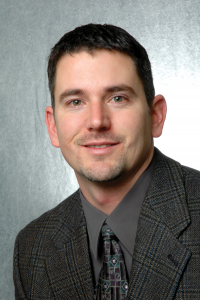
“These students are learning about water sampling, analysis and creative problem solving, which will help them find good jobs and keep our state supplied with talented engineers to address water resource needs.” Brian Haggard, AWRC Director
Brian Haggard, professor of biological and agricultural engineering, has been elected president-elect of the National Institutes for Water Resources. Haggard will serve as president-elect until October and then serve a year as president.The NIWR consists of water resource research centers in each state that serve under a congressional mandate to form the primary link between water experts in the nation’s universities and those who manage and use water.
Haggard is also the director of the Arkansas Water Resources Center of the University of Arkansas System Division of Agriculture. At the water center, Haggard coordinates with researchers working on several projects funded from sources including the Arkansas Natural Resources Commission and the U.S. Geological Service.
Mantooth Elected Society’s Vice President of Operations
Alan Mantooth, a Distinguished Professor in the department of electrical engineering, was elected as the 2013-2014 vice president of operations for the Power Electronics Society in November.
The Power Electronics Society is part of the Institute for Electrical and Electronics Engineers. The Power Electronics Society is one of the fastest growing technical societies in IEEE and works to facilitate and guide development and innovation in power electronics technology.
As the vice president of operations, Mantooth will coordinate and supervise committees in the society, coordinate chapter activities and work to refine the Technical Interest Profile of the society through membership interests and emerging trends in the field.
Matlock named Executive Director of the Office for Sustainability
Marty Matlock, professor of biological and agricultural engineering, has been named as the first executive director of the campus-wide office for sustainability at the University of Arkansas. Provost Sharon Gaber and Associate Vice Chancellor for Facilities Mike Johnson appointed Matlock to demonstrate the increased emphasis on sustainability across all campus activities.Matlock will coordinate program implementation and strategy development for sustainability activities across the U of A community. He will work with Johnson to coordinate the director and staff of the office for sustainability in a number of initiatives. The U of A Sustainability Council, composed of representatives of academic units and student groups, will advise the office for sustainability.
Osborn Wins Gold Medal Award From Professional Society
Scott Osborn, associate professor of biological and agricultural engineering, is the winner of a Gold Medal award presented by the American Society of Agricultural and Biological Engineers. Osborn won the Massey Ferguson Educational Gold Medal, which honors people whose dedication to the spirit of learning and teaching in agricultural engineering has advanced with distinction agricultural knowledge and practice.Osborn was selected in recognition of his exceptional achievements in teaching and for his leadership in developing new curricula in the rapidly developing area of biological engineering and in reform of engineering education to more fully integrate design and discovery-based learning.

